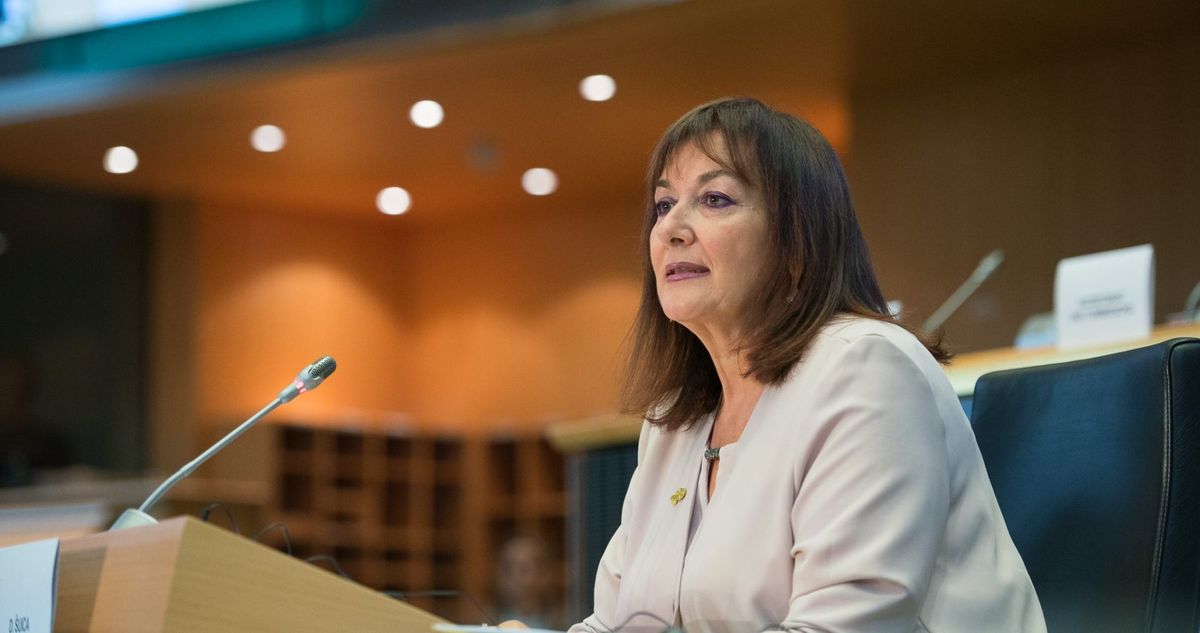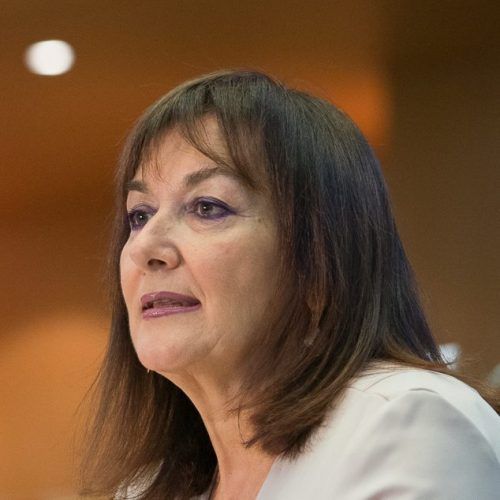
Summary
The epidemiological and economic consequences of the COVID-19 pandemic have quickly become top priority for policymakers the world over. But as governments have responded to the crisis, deeper societal issues have also bubbled to the surface which must be urgently addressed in the weeks and months to come. These issues were discussed during an online debate with European Commission Vice-President for Democracy and Demography Dubravka Šuica held on 5 May.
“We talk a lot about COVID-19’s impact on health. We talk a lot about the politics of COVID-19. We talk about the economic devastation that has been caused. But lost in all this noise is often the societal impact – how it is impacting our societies and solidarity systems,” said Shada Islam, Director for Europe & Geopolitics at Friends of Europe.
For a continent already beset by an ageing population and shrinking economies, the pandemic has exacerbated existing challenges.
“We have to think about the elderly, about people who are more isolated and lonelier than ever before, and the subsequent impact on their health,” said Šuica. “The crisis demonstrates the need for an effective approach towards demographic change. We must look into the needs of our ageing society. Loneliness more than ever before needs to be addressed as a substantial part of our health, social and economic policies.”
“In addition, we can look at building solidarity not just at the European level, but also between generations. Remember that by disproportionately losing our elderly to this virus, we also lose a part of our precious living wisdom and history.”
Going forward, European leaders will have to consider the linkages between pre- and post-COVID challenges – preparing healthcare systems for the future, ensuring quality long-term care, the effects on Europe’s shrinking workforce, and addressing the long-term effects of anxiety and loneliness.
At the other end of the spectrum, the crisis has laid bare existing issues faced by children – from domestic abuse to online bullying. It has also left well over one billion children out of school.
The Commission was already working to develop a comprehensive strategy on the rights of the child, but current events have highlighted more than ever its importance. “As we take our work on children’s rights forward, we need to ensure that children grow up in enabling and safe environments,” said Šuica.
Addressing these issues will be key as plans for the Conference on the Future of Europe forge ahead in an increasingly challenging context. Originally set to be launched on Europe Day (9 May), the Conference should be an opportunity for citizens to have a greater say and to be involved in European politics more often than every five years when European Parliament elections are held.
The Commission is committed to this exercise being open, inclusive and transparent. As such, it will only be successful if all citizens see the concrete effect on EU policymaking – this means ensuring inclusion and wide representation of all of Europe’s diversity so that they are able to highlight their priorities.
As the world has changed due to the pandemic, so too have citizens’ concerns which will guide the Conference’s content. “With millions of citizens still confined and the global recession looming, the perspective has radically changed,” said Šuica. “But our determination to engage with citizens and ensure their voices are heard in Europe has not changed.”
Healthcare and European leaders’ response to the pandemic are expected to be top of the agenda.
About
Friends of Europe is delighted to welcome European Commission Vice-President for Democracy and Demography Dubravka Šuica to hear more about her hopes, vision and aims for Europe’s future in the ‘age of coronavirus’.
The ‘In Conversation With’ series provides an opportunity to engage with the EU’s new college of commissioners. Featuring interactive, interview-style discussions, the event will take place online with a limited number of virtual seats available to our multi-stakeholder network of members from the private, public and civil society sectors. These participants will be able to pose questions and interact directly with the Vice-President.
Following on European Commission President Ursula von der Leyen’s aim to engage more closely with citizens, the event will also be livestreamed. Viewers will have the opportunity to submit their questions in writing, and the best rated ones will be asked to the Vice-President during the interview.
Our events include photos, audio and video recording that we might use for promotional purposes. By registering, you give your permission to use your image. Should you have any questions, please contact us.
PHOTO CREDIT: flickr/European Parliament
Schedule
With the outbreak of COVID-19, questions have arisen over how the Conference on the Future of Europe can achieve its aims in this new ‘age of coronavirus’. While the start of the Conference should signal the kick off of two years during which the European Commission will consult and engage with citizens in an open, inclusive and transparent manner, the evolving global health situation brings new issues to the fore such as: how this new pandemic will change Europe’s demography, the impact it will have on our social protection systems, and what must be done to ensure that it does not empower populists and xenophobes to turn dangerous rhetoric into action.
- What steps will the Commission take to ensure that the Conference proceedings are truly inclusive and representative of Europe’s multicultural societies, while meeting the challenges posed by this ‘age of coronavirus’?
- As the Conference seeks to also engage the voices of those critical towards the European Union, what can be done to ensure constructive dialogue?
- How will the Commission rise to meet the new demographic challenges posed by the fallout of a global pandemic?
Speaker
Dubravka Šuica
European Commission Vice-President for Democracy and Demography
Moderator
Shada Islam
Managing Director at New Horizons Project
Speakers

European Commission Vice-President for Democracy and Demography
Dubravka Šuica leads the Commission’s work on demography, deliberative democracy, Conference on the Future of Europe, giving people a say in how the Union is run and what it does. She is in charge of devising innovative and transformative policies to address the demographic transition, including adequately addressing the needs of an ageing population. She coordinates the intersectionality of demographic challenges and opportunities, from its territorial dimension, to harnessing Europe’s human capital, the work-life balance to the digital transition and climate change, as well as the global demographic transition. She furthermore leads the European Commission’s work on children’s rights and child protection, both inside the EU and globally. Šuica is a former member of the European and Croatian parliaments. She served as the vice-president of the Congress of Local and Regional Authorities of the Council of Europe for 10 years and was the first female to serve as mayor of the city of Dubrovnik.

Managing Director at New Horizons Project
Continue
the debate on
- Debating Europe

